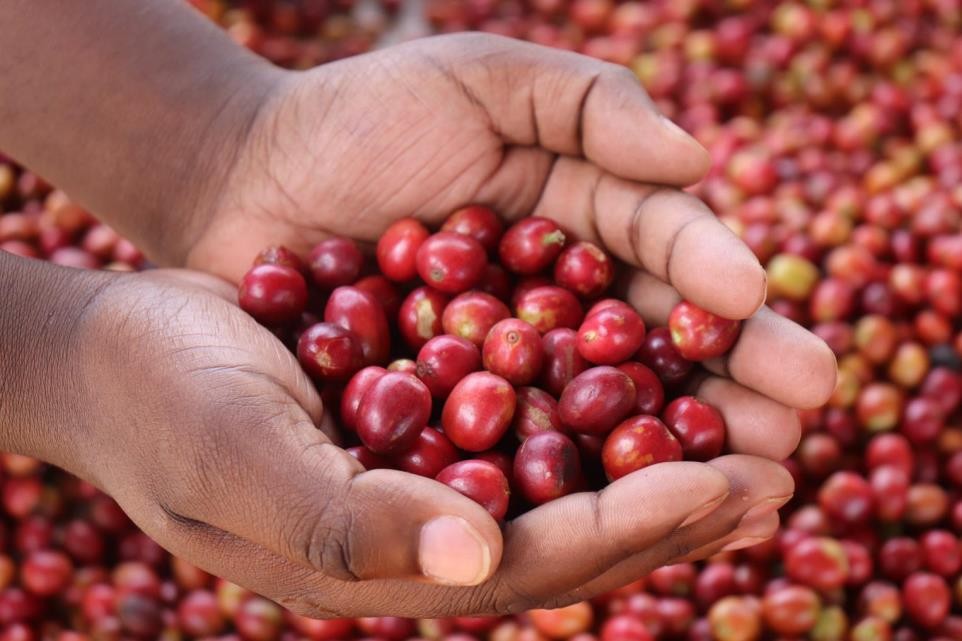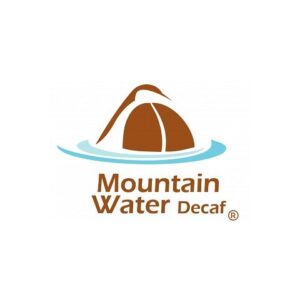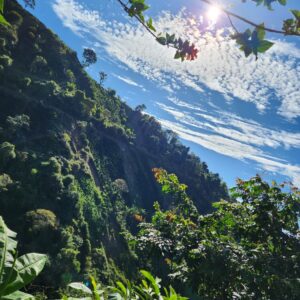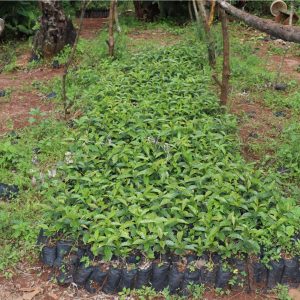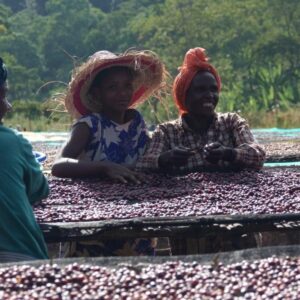Description
KENYA: GIKANDA FCS Peaberry
Altitude: 1,600-1,900 MASL
Varietal: Ruiru 11,SL28, Batian
Region: Nyeri County, Mathira West District – GICHATHAINI WET MILL
Cup Profile – Black Currant, Citrus Fruit, Crisp acidity , Dried Dates sweet cup
TRACEABILITY
Gichathaini is one of three factories (or washing stations) that
together form the Gikanda Farmers’ cooperative society. There
are currently 897 members, of which roughly 770 are active and
sell their coffees through the factory. The washing station itself
is located on the Eastern side of Mt. Kenya national park about
6 km from the town of Karatina.
The Mill:
The conditions for coffee growing are near perfect: there is
abundant rainfall throughout the year, with concentrated wet
periods between March-June and October- December. The
average daily temperatures range from 15 C to 26 C with
considerable cooling taking place at night.
The water used at the station for fermenting and washing the
coffee is drawn from the nearby Ragati river using gravity-fed
channels and is re-circulated during processing for conservation
purposes. After use it is moved into soak pits away from water
sources so that it does not pollute the area.
Gichathaini is one of three washing stations under the Gikanda Farmers’ Cooperative Society, located 6 km from Karatina on the eastern side of Mt. Kenya National Park. The cooperative has 897 members, with approximately 770 actively supplying coffee to the factory.
The Mill:
Gichathaini benefits from ideal coffee-growing conditions, including year-round rainfall, with peak wet seasons from March to June and October to December. Daily temperatures range from 15°C to 26°C, cooling significantly at night. Coffee processing uses water from the nearby Ragati River, channeled via gravity-fed systems. Water is recycled during processing to conserve resources and directed to soak pits post-use to prevent environmental pollution.
Timely and selective hand picking is carried out in Gichathaini
wet mill. Cherry is delivered to wet mill the same day it is picked.
Cherry sorting is carried out at the wet mill prior to the pulping.
Red ripe cherries are separated from under-ripes, over-ripes and
foreign matter. Processing utilizes clean river water (wet
processing) that is re-circulated before disposal into seepage
pits. Sun drying is done before delivery of the coffee to the dry
mill for secondary processing.

